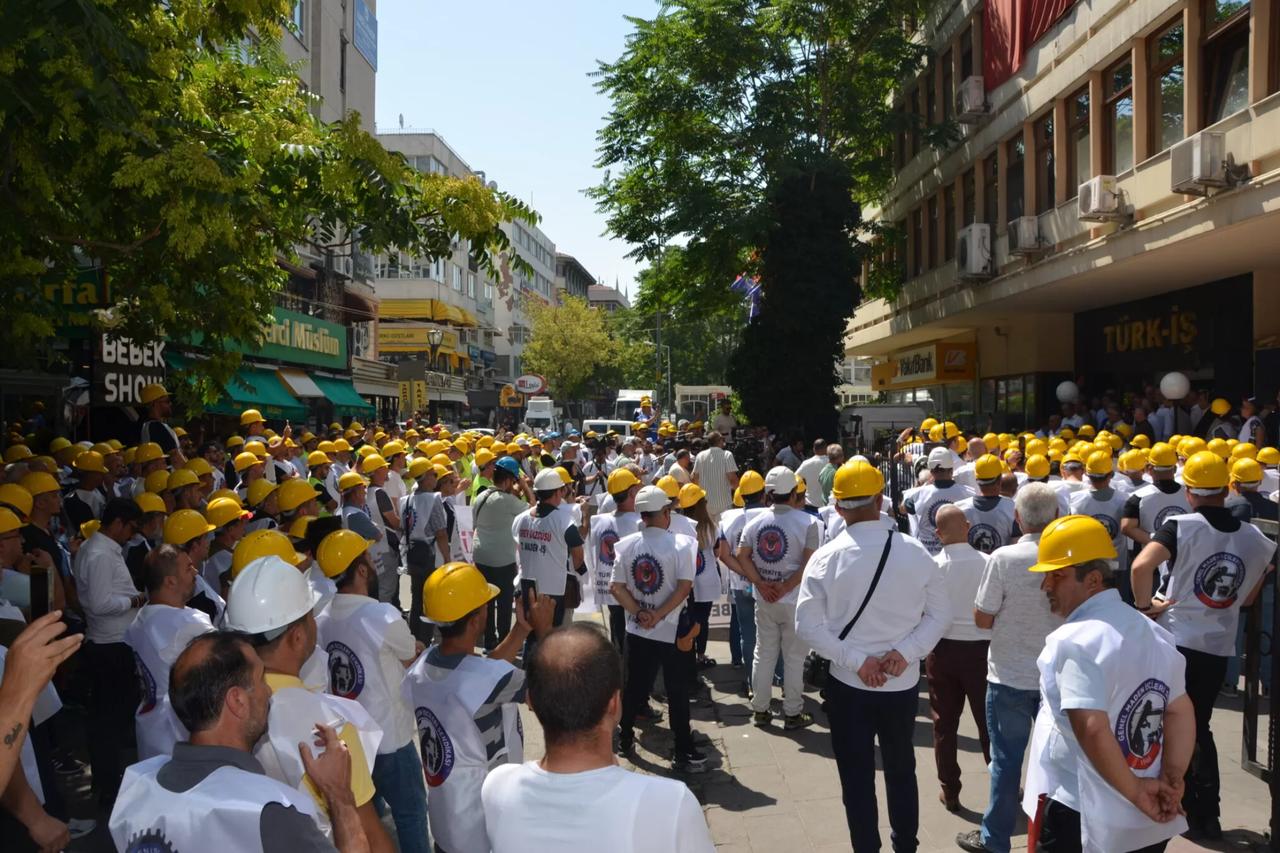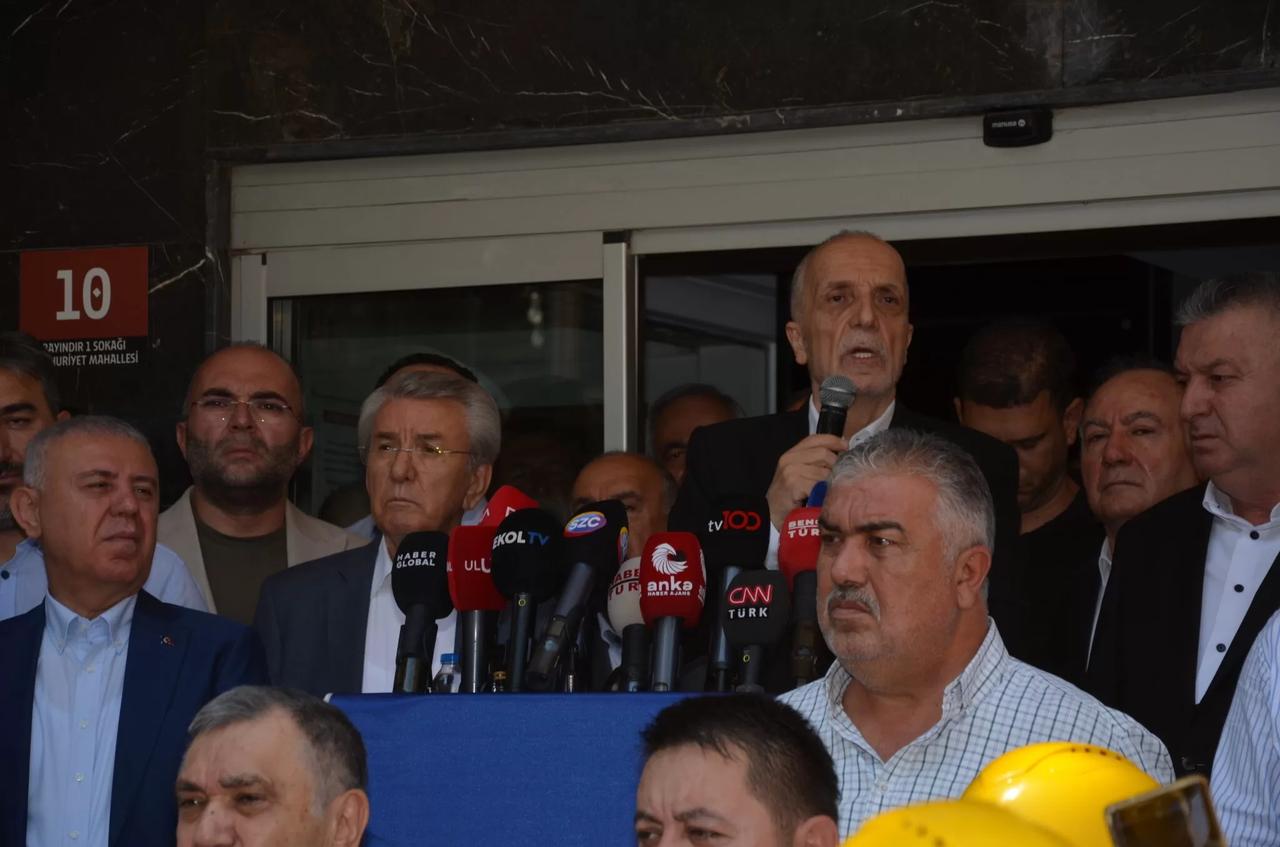
More than 600,000 public sector workers across Türkiye are preparing for staggered strike action starting August 1, after wage negotiations between trade unions and the government failed to yield an agreement, Confederation of Turkish Trade Unions (Turk-Is) President Ergun Atalay announced Wednesday.
The strikes are set to begin in state-owned mining operations, with the potential to expand across various public institutions if talks remain deadlocked.
The collective bargaining process, which covers wage increases for 2025 and 2026, has so far failed to produce a compromise. In a surprise meeting on Tuesday, the government proposed wage hikes of 24% for the first half of 2025, followed by increases of 11%, 10%, and 6% over each subsequent six-month period. The offers represented slight increases over previous proposals, but Turk-Is deemed them insufficient amid ongoing inflation.
The Turkish Statistical Institute (TurkStat) reported that consumer prices have risen substantially since December, reaching 16.6%, a figure reflected in the first-half increase offer. However, Turk-Is officials voiced skepticism toward official inflation statistics and rejected the government’s proposal, calling for more meaningful compensation that aligns with the cost of living.

The union has announced that strike action will commence on Friday, August 1, at Eti Maden, a state-owned mining company, and continue on Saturday, August 2, at mining sites in Zonguldak.
Turk-Is has indicated that further strikes will be rolled out across other sectors, including highways, railways, power plants, ministries, universities, and hospitals, if no resolution is reached.
Workers gathered outside the Turk-Is headquarters on Wednesday to express their frustration, chanting slogans such as “Is anyone hearing us?”
Turk-Is President Ergun Atalay criticized both the government and the Turkish Statistical Institute, saying workers no longer trust official inflation data. He emphasized that public workers are carrying out essential duties—ranging from underground mining to offshore welding—and deserve fair compensation that reflects their contributions.
“This is not child’s play. The state must keep its promises," Atalay said, addressing the government. "Workers are dying underground and serving the public under difficult conditions. Do not compare us to others. We are the laborers of this country.”
He also criticized the absence of key government figures from negotiations, noting that the Labor Minister Vedat Isikhan was attending the G20 summit in Africa while the situation at home remained unresolved.
Currently, the lowest wage for public workers stands at the minimum public sector wage which is around ₺37,000 ($911.67) to ₺38,000 per month.
According to Turk-Is data from July, the monthly poverty threshold for a family of four in Türkiye stands at ₺86,036, while the hunger threshold—the minimum cost of food—has risen to ₺26,413. These figures have added urgency to workers’ calls for higher wages, as many public employees struggle to meet basic living expenses.